What is Pruning and Why Prune Your Cannabis Plants
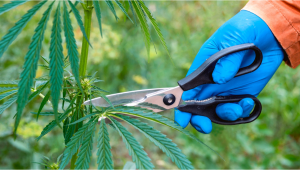
- 1. What is pruning and what are fan leaves?
- 1. a. Pruning
- 1. b. Fan leaves
- 2. Why prune your plants?
- 2. a. Increased lower bud development
- 2. b. More energy for upper bud development
- 3. How and when to prune?
- 4. Training techniques that work well with pruning
- 5. In conclusion
There are a number of theories why fan leaves should or should not be removed. Some growers advise otherwise, there are different techniques to allow your plant to develop better and pruning is one of them.
1. What Is Pruning And What Are Fan Leaves?
Pruning
Pruning consists of removing any number of fan leaves to improve our plant’s development. Even though usually we remove the bigger ones you can pluck off leaves of any size you want and anywhere you think your plant can benefit from it. Always having in mind that pruning may shock your plant just like HST techniques. Before talking about why and how to prune, we need to know a bit more about the fan leaves.
Fan Leaves
Fan leaves are the classic fingered leaves cannabis produces, they are used to produce sugars and other necessary substances for plant growth through the process of photosynthesis, also account for the greatest area of light absorption, which means they have an extremely necessary function in the growth and development of your plant.
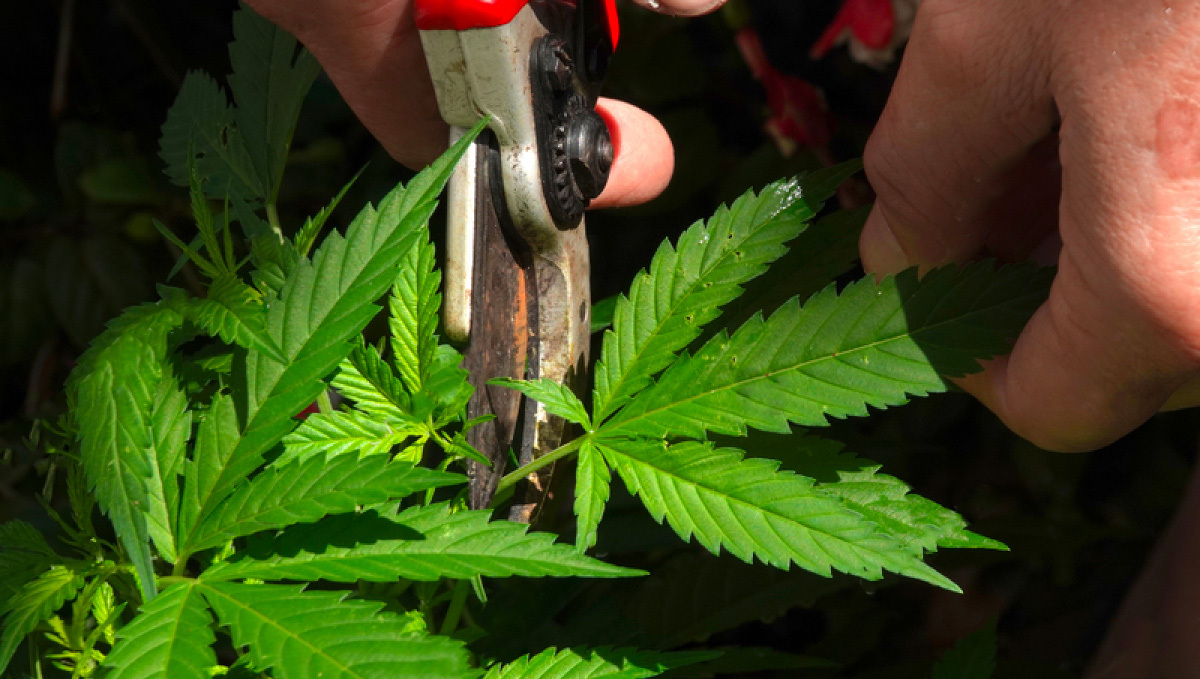
When pruning, you need to remember that some plants can stand shock better than others, depending on the strain. Removing fan leaves may not only slow growth but will also make it difficult for the plant to get rid of toxic gases and regulate her temperature. Removing too many leaves may ultimately result in the sex reversal or even the death of your plant as you’re removing what the plant uses to produce food.
2. Why Prune Your Plants?
Just like HST, we are directly harming our plant by plucking its leaves off. The goal is to increase yields by allowing light to reach deeper and removing buds in shade to allow the main buds to develop even more. This technique can be used with both autoflowers and photoperiodic cannabis as long as it’s used with caution. If used correctly, it can have the following benefits:
Increased Lower Bud Development
Some strains can have really big fan leaves (can have up to 12 “fingers”), and sometimes these big fan leaves can cover buds in the lower branches, not allowing them to develop to their full potential. In cases like this we trim them off, by removing the bigger fan leaves we allow light to reach these smaller buds thus increasing our overall yield and quality of the smaller buds. Be sure to not prune aggressively, removing a couple of leaves every couple of days shouldn’t have a negative effect on your plant but removing too much at a time can shock your plant.
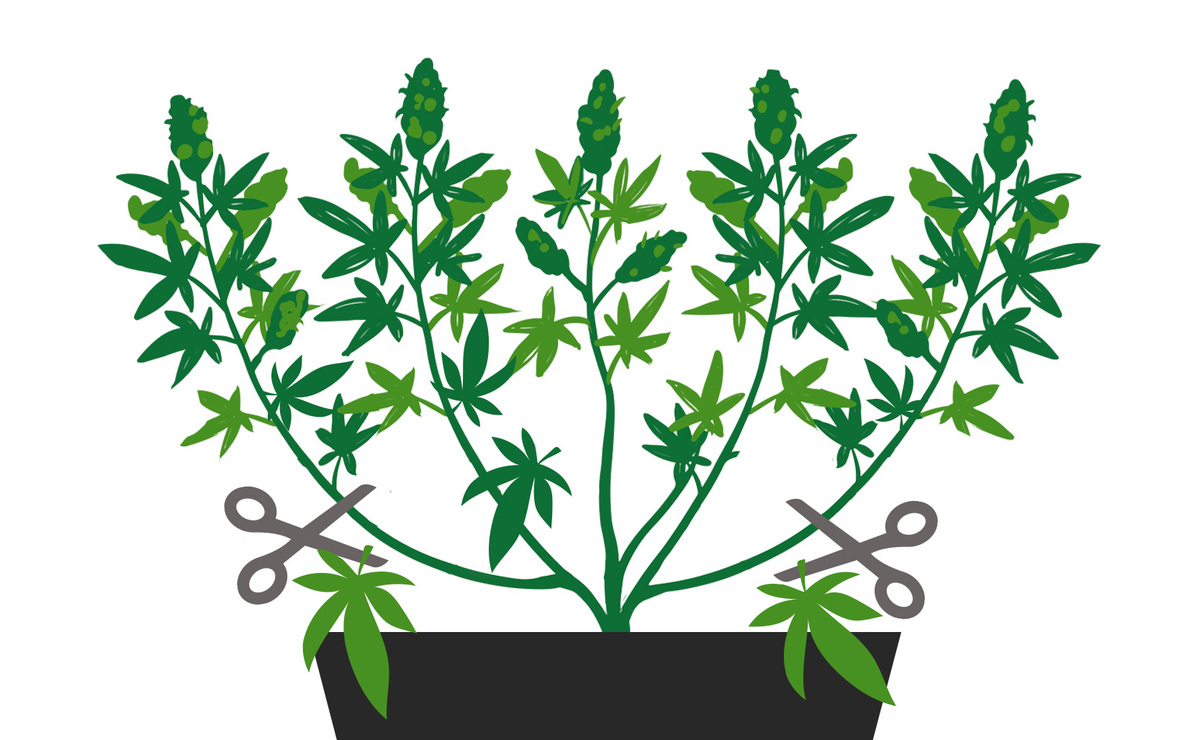
More Energy for Upper Bud Development
When the plant is too bushy there can be a lot of bud sites that won’t develop nicely. Removing lower leaves and branches can make the plant focus its energy on the top part, where the bigger buds are being produced. By carefully trimming unnecessary branches and/or leaves we avoid wasting our plant’s energy, this energy can then be redirected to the development of the main buds, resulting in bigger and denser flowers.
Remember pruning or trimming any part of your plant can have seriously bad effects on it. This is something that takes a bit of experience and we recommend naturally evolving from LST to HST and then start pruning or trimming as you think it’s necessary. There’s no logic to it, to be able to perform it correctly you need to learn to read the signs your plant gives.
3. How And When To Prune?
If you're still new to pruning and trimming you can start removing leaves and branches with a scissor similar to the one used to trim buds. Always cleaning the scissors with alcohol before using them. More experienced growers pluck leaves off with their fingers, using their fingernails to perform a clean cut.
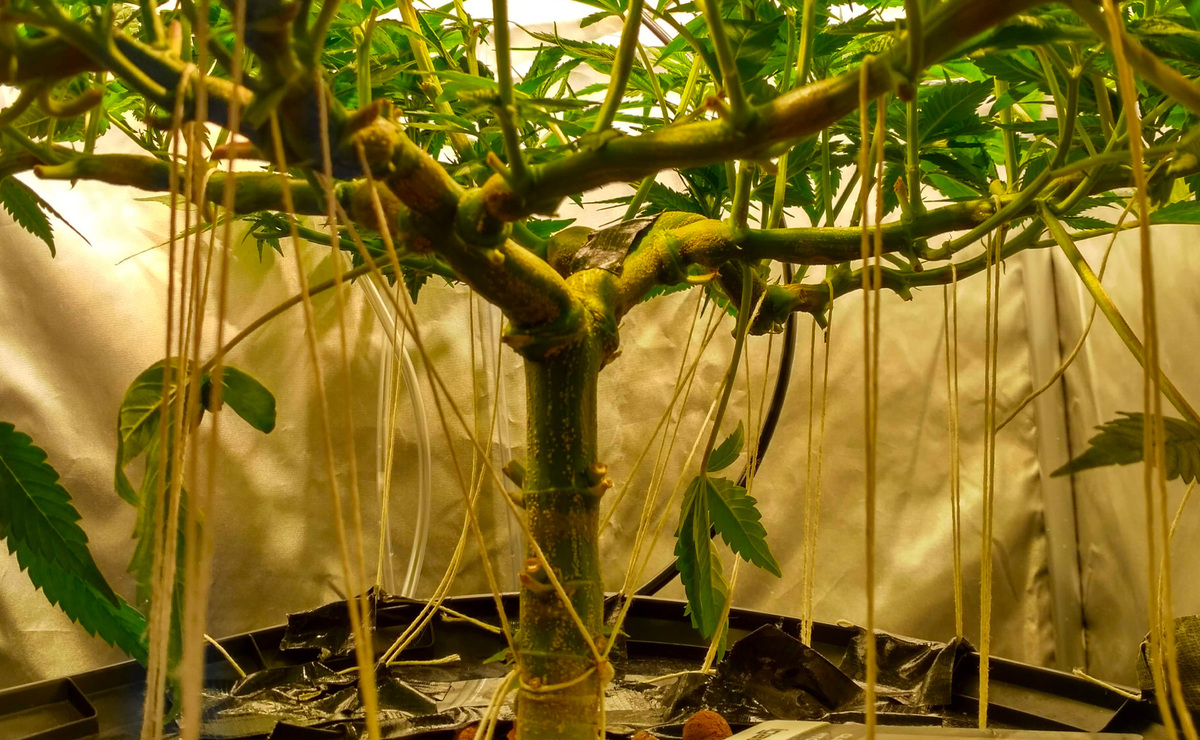
It really doesn't matter how you remove the plant material as long as you do it carefully and slowly to avoid shock. Like other training techniques, you should start pruning by removing a couple of leaves a day or for better results every 2 to 3 days, starting when your plant is 3 weeks old up until the pre-flowering stage.
4. Training Techniques That Work Well With Pruning
As we have mentioned in the above text, you have to be careful with autoflowering strains. They just do not handle stress in the same way as photoperiod strains. Not a bad thing, not at all - you just have to alter some of your cultivation methods to ensure the biggest yield possible. So, the last thing you want to be doing (unless you have a bunch of experience with growing autos) is to be topping, fimming, super cropping, or any other training techniques that will put the plant under a bunch of stress.
Look, you won't kill your plant with these techniques, but you will most likely stunt growth for a few days. With the finite vegetative growth time that autos have, this is not an ideal outcome. So, if you are going to try any of the above training techniques on your autos, it is best to keep them within the low-stress sphere.
The Tie-Down Method
The tie-down method is a great way to maximize autoflowering yields, especially when paired with some light pruning. Tie-down involves gently and slowly pulling your plant downwards until the canopy is at one horizontal plane. This will cause the branches to start growing outwards, rather than up vertically - in effect “spreading” themselves across a flat plane.
To tie down, use some soft ties (such as gardening twine) to gently pull the main stalk and branches down to the same level. After a few days of holding this position, your plant should start growing outward.
Scrogging with Pruning
ScrOG (Screen of Green) is a very popular training technique with photoperiod plants and can be used with autoflowers too. Scrogging works best when used in conjunction with light pruning - the idea is to have as much of your grow area filled with cannabis foliage as possible.
To do this, use a screen (or trellis) to support the plant as it grows. After a few weeks, remove any lower fan leaves growing below the screen and only leave the ones near the budding sites. as your plant develops, slowly train the stem and branches into the net, which keeps the canopy at one, uniform level.
5. In Conclusion
Either pruning autoflowers or photoperiodic cannabis, you should start slowly, being really, careful and not to overdo it. Just like HST you can benefit when done correctly. But remember it can seriously shock your plants when done aggressively. When in doubt go for low stress training techniques until you’re confident enough, even if it takes more time and work to reach the same result.
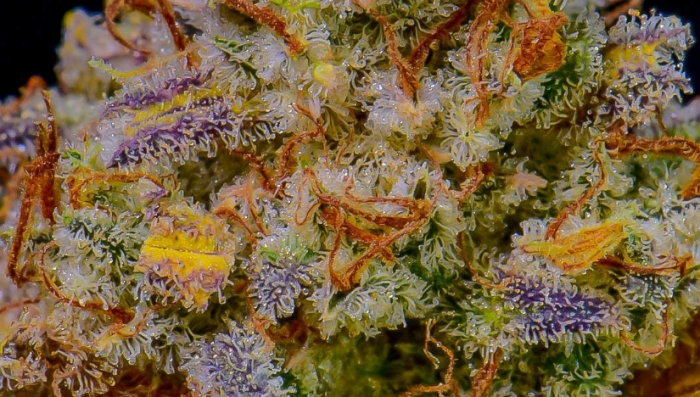







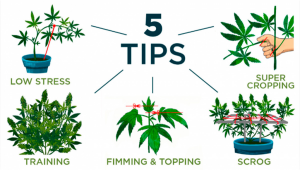


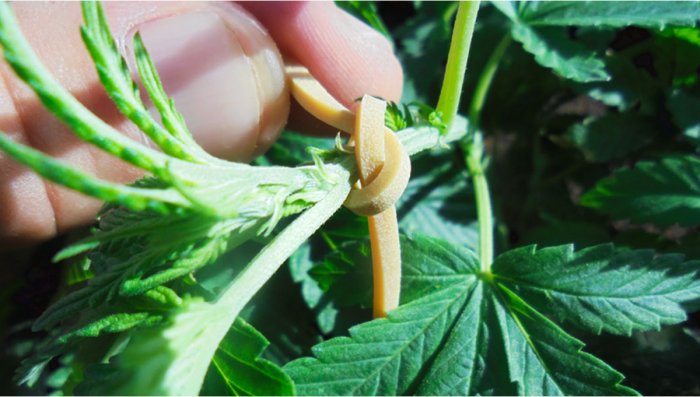
Comments